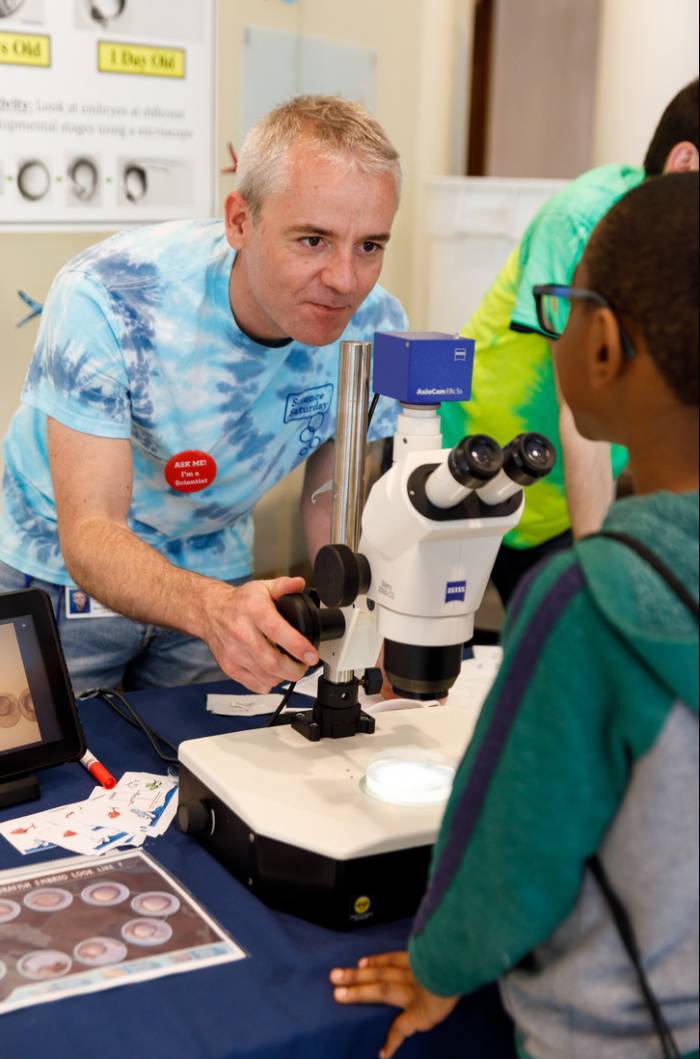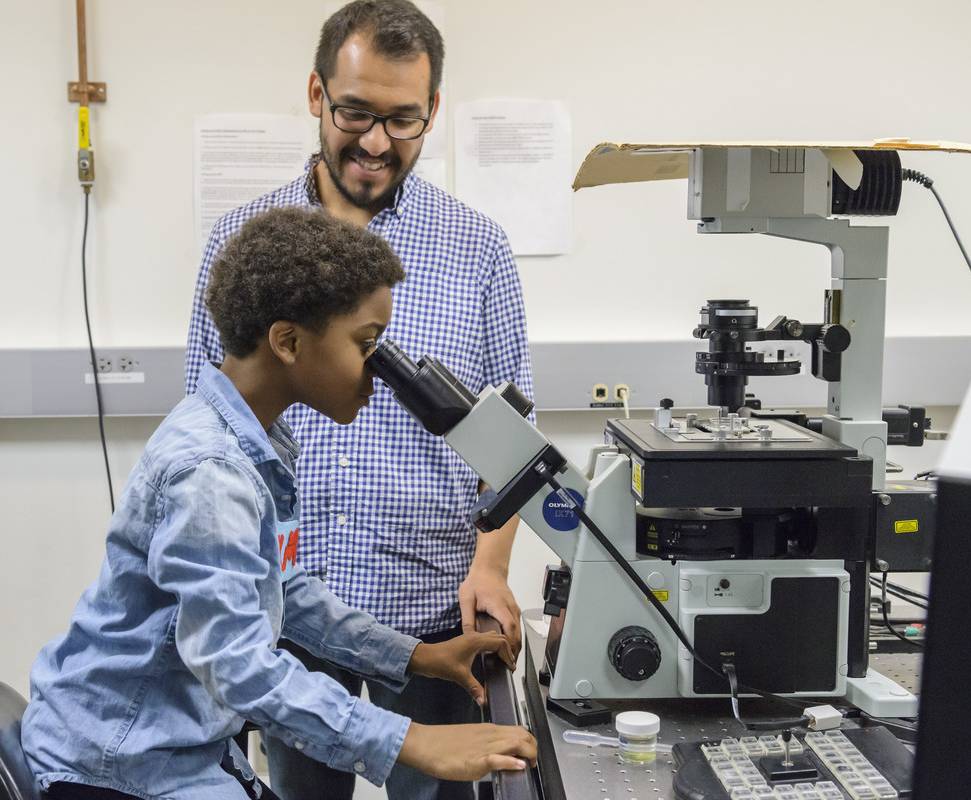Learning From Your Mentee
Finding a Mentoring Style that Works for Your Mentee
As mentioned in previous sections, a baseline definition for mentorship is the creation of an educational partnership between someone who is experienced in a given area, and someone who wishes to gain experience in said area. When we engage in mentorship, we are promoting the transfer of knowledge between individuals, and within organizations. Being effective at mentorship involves honest self-assessment, implementation of leadership best practices, careful and thoughtful project planning, and operating with an empathetic mindset.
It is this last point — empathy — that can be difficult to master, especially if you do not have a lot of mentoring experience. Human nature and behavior is incredibly complex, and is shaped by so many factors that are, in many ways, hard to define. The way we each interpret information can be markedly different from the person sitting next to us. As we work to be more culturally inclusive in science, we must be ready to work inside of a more flexible system. To be an empathetic mentor, you must work to hear and understand the feelings and perspectives of your mentee, and have the capacity to engage in helping behaviors that allow your mentee to effectively respond.
 Engulfed in empathetic mentoring is being able to control our own knee-jerk emotional responses, and work to always respond in a calm, clear way, keeping aware of your tone and body language. This is even more important when delivering negative feedback — you absolutely can express disappointment or even discontent in a straightforward and calm fashion. Few people on this planet have perfected this skillset, but it is worth striving for. Being an empathetic mentor also involves understanding limitations — whether it is limitations of the experimental system, or of your mentees capacity, being flexible enough to switch gears to meet needs demonstrates an ideal mentorship quality. Even when you do less than your best, which happens, knowing how to reflect and adjust is a sign that you have the ability to iterate and improve.
Engulfed in empathetic mentoring is being able to control our own knee-jerk emotional responses, and work to always respond in a calm, clear way, keeping aware of your tone and body language. This is even more important when delivering negative feedback — you absolutely can express disappointment or even discontent in a straightforward and calm fashion. Few people on this planet have perfected this skillset, but it is worth striving for. Being an empathetic mentor also involves understanding limitations — whether it is limitations of the experimental system, or of your mentees capacity, being flexible enough to switch gears to meet needs demonstrates an ideal mentorship quality. Even when you do less than your best, which happens, knowing how to reflect and adjust is a sign that you have the ability to iterate and improve.
Context Matters
There is no one “right” way to be a good mentor. But, good mentors are able to consider that any prospective mentee will likely come from a context that differs from theirs. It is not possible to fully understand the context of every mentee you come across, you can do your best to find common ground. It is also worth keeping in mind that the norms and expectations of the scientific community, are likely to be markedly different from the cultural norms and expectations your mentee experiences in their home context, outside of science. Doing your best to see where a mentee might be coming from will help you to minimize biases, and identify ways to bridge gaps.
Mentoring can involve students who are just entering the scientific enterprise. As such, we should keep in mind that we are working with younger populations (for example high school students for RockEDU’s SSRP, and undergraduates for Rockefeller’s SURF program). This may be their first professional experience, and they are most definitely still learning. It helps to remind ourselves how long it takes the prefrontal cortex — the region of our brain implicated in metacognition and decision making — to fully develop. This is all to say that our mentees are still working on developing how they process information, and might need assistance reaching the right conclusions.
Related to their youthful inexperience, our mentees may have their own notions of what scientific research is about, and this can often fall into the “idealistic” category. When working with the SSRP classes through RockEDU-run courses and events, we work hard to temper these expectations so that the mentees can shift their focus toward the process of science, and making strong professional connections. Whether your mentee is in an official program, or is someone you decided to work with on your own, we recommend that you work to manage these expectations from the start. The Adaptive Action Plan is a way to help make explicit your goals, and regular check-ins can give you the opportunity to better understand the goals of your mentee.
Lastly, mentees are coming in to learn, usually with a ton of excitement, and we should also keep in mind that they just don’t know what they don’t know. Through this mentorship opportunity, our students will be exposed to new techniques and concepts that will challenge them, sometimes in positive ways, and other times in ways that feel overwhelming (think about your own capacity for resilience to help engage our empathetic selves). You may have to find new, creative ways to get your mentee excited about something that feels challenging, or find strategies to help with motivation. Providing examples of what success looks like in your particular situation can definitely help put stuff into perspective.

Immediately Establish Lab & Group Norms with your Mentee
Help your mentee help themselves by setting expectations for how to work within the context of your lab and group culture. From the start of your mentorship partnership, be explicit about how things work in your context. Include information about the expected hours, the space(s) available to conduct their work, information about how and when you can be available to assist/provide feedback, and what the norms are for lab safety (attire, etc.). This could even include expectations for social gatherings — for example, does your lab eat lunch together every Friday? Are there any other social/fun traditions that can be extended to your mentee?
Remember that there is a lot of new things happening for your mentee. Be sure to give space for processing, and ensure that the pace of work matches the capacity of your mentee. It is ok to take some breaks! And if it doesn’t go as well as you had planned, there is always trying again.
